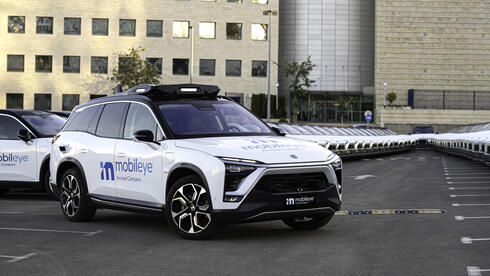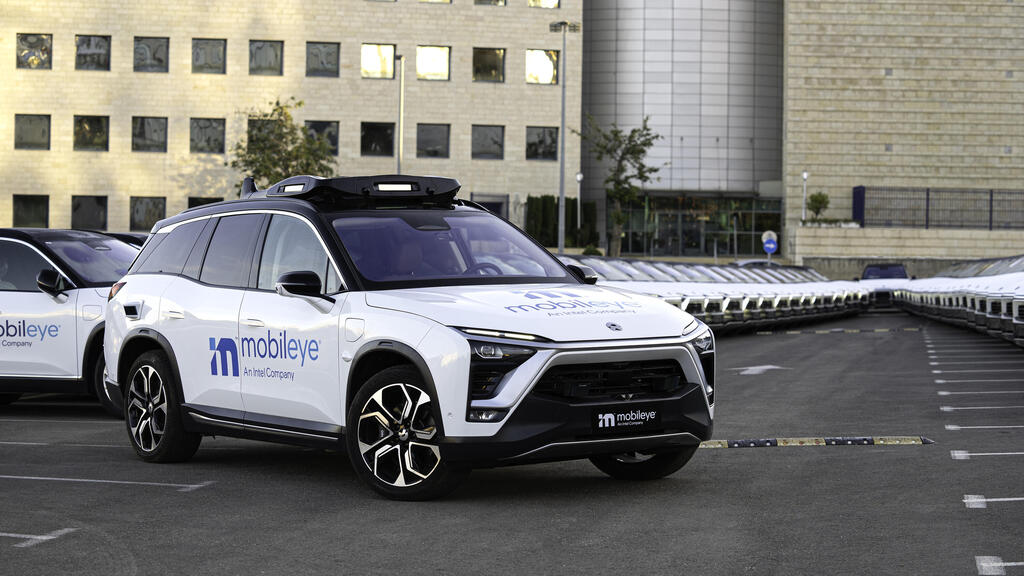
Mobileye’s stock rallies as robotaxi rollout with Lyft set for 2026
First autonomous taxis to launch in Dallas as Mobileye moves closer to full autonomy.
Mobileye shares are surging on Wall Street following the announcement that its joint robotaxi project with ride-hailing company Lyft will hit the road in 2026. Mobileye's first autonomous taxis are expected to operate in Dallas.
Lyft and Mobileye announced their collaboration in November but did not provide details on deployment plans. Although Israel was initially expected to be the pioneer of Mobileye's robotaxi service, the plan has yet to be implemented there. Meanwhile, pilots are already underway in the U.S. Later this year, Tesla is set to begin operating driverless taxis in Austin, and Waymo plans to launch a similar service in partnership with Uber in Austin and Atlanta.
The joint venture between Mobileye and Lyft will be funded and managed by Marubeni, a Japanese corporation involved in fleet management, among other industries. Marubeni will finance the deployment of the autonomous vehicles, which will be available for booking through the Lyft app, competing directly with Uber. This is not the first collaboration between Mobileye and Marubeni—previously, they partnered with Israeli company Moovit to develop autonomous transportation solutions in Japan.
The car manufacturer supplying the vehicles has not yet been announced. However, it is estimated that after the initial launch in Texas, the venture could expand to thousands of vehicles, depending on its success.
If this expansion materializes, it will mark the first major realization of Amnon Shashua’s autonomous vehicle vision, nearly a decade after Intel acquired Mobileye for $15 billion. Until now, Mobileye’s revenue has primarily come from selling advanced driver assistance systems (ADAS), which enhance vehicle automation but do not provide full autonomy like a robotaxi. Mobileye’s ADAS technology is currently integrated into vehicles from automakers such as Audi, Volkswagen, and leading Chinese brands, including Zeekr.
The announcement comes at a crucial time for Mobileye, which has faced significant challenges over the past year due to disruptions in the Chinese auto market and rising inventory levels among customers. Last Thursday, Mobileye, founded and led by Amnon Shashua, released its financial results for 2024, a year that was arguably the most difficult in the company’s history. The company reported a 20% decline in revenue to $1.65 billion and a net loss of $3 billion, which included a massive $2.6 billion write-down reflecting the gap between Intel’s acquisition price and Mobileye’s current market valuation.
For 2025, Mobileye provided a cautiously optimistic forecast, expecting revenue between $1.7 billion and $1.8 billion—indicating some recovery but still falling short of 2023 levels. The company projects an operating loss, including accounting items, of $489 million to $574 million, while adjusted operating profit is expected to range from $175 million to $260 million.
Mobileye shares have fallen 40% over the past year and, prior to today’s surge, were trading at a market valuation of around $12 billion—below both its secondary offering price and the $15 billion Intel paid to acquire it.














